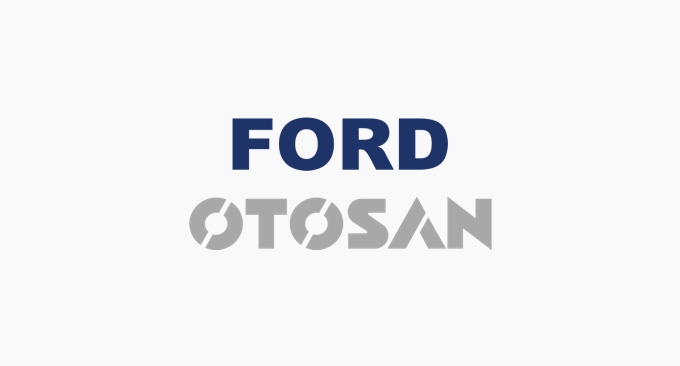Cultural Transformation and Shared Change Management
New generation organizational transformations such as Agile Organization, Digital Transformation, Innovation creates the need for an important Cultural and Behavioral Transformation.
Companies generally follow an order such as making the organizational change that will support their vision and strategies and then creating the Cultural Transformation required by this change. One of the main reasons for this is the idea that organizational change is more concrete and tangible than culture. However, Organizational Transformation is not a strong meaning and purpose on its own, but a tool. Hence, performing the organizational transformation first may cause a 'tool' to become a 'goal'. This creates gaps and contradictions in what is done why and necessity and willingness to change which leads to an increase in resistance to change both actively or passively.
That is why it is crucial to address Cultural Transformation either before these organizational transformation initiatives or simultaneously.
In these processes,
- Together, we define the common future that the company and its employees want to go and the “ideal culture” that will take them to this future.
- This definition becomes the 'common truth', that is, the common 'meaning and purpose', of which everyone relates and internalizes.
- Organizational change on the agenda, for example, “Agile Organization” is now finding its right place for everyone and is perceived as a tool for common meaning and purpose.
- We then create a multidimensional and powerful paradigm and behavioral change process for both senior management, all managers and employees (especially senior and mid-level managers in agile transformation have to experience difficult paradigm changes).
- We focus not only on the individual, but also on collective transformation; we trigger the concrete change of relationship styles and ensure its continuity.
- Our customers, who experienced the cultural transformation before, stated that they created a strong rationale, meaning, as well as a mental and emotional ground for the transformation of the Agile Organization.
Collaboration Culture for Total Benefit
One of the most important features of an effective and successful society and community is the strong culture of collaboration. Mutual trust and open communication are in the foundation of the culture of collaboration.
Companies, where collaboration can occur spontaneously without the need for instruction or complex processes, overcome the difficulties they face at any volume much more quickly and effectively and reveal their potential significantly more.
Renunciation of “Total Benefit” is being observed at the companies where the pretending act is present and meetings consist of focusing on the source of the problem rather than the solution, where nobody would like to take the responsibility of any doing while also repeating the phrases such as “I do not aim this” and where nobody gives up on their own way of evaluation, eventually ending up escalating the problems rather than restraining them.
In such cases, we are doing Cultural Transformation studies to strengthen Collaboration for Total Benefit:
- We analyze the culture of collaboration between departments or dealers or suppliers within the organization in 4 main interaction areas.
- We define the existing and ideal collaboration culture by participatory methods.
- We facilitate confrontations and awareness raising at different levels of management, as well as acceptance and generation of common mind.
- We define the Collaboration Principles (Ground Rules) for Total Benefit.
- We make action plans for the implementation of these principles.
- We strengthen the process through the consensus and commitment of senior
- We implement action plans together with you.
Our clients who have started working Collaboration Culture have stated that the meetings are not as tense as they used to be, not everyone takes their guards on their way to work and meetings anymore, the question of “who should we put the blame on?” has evolved into “what’s the right move for the total benefit of company?” and even in the existence of problems, nobody makes things harder or have an attitude towards anyone while instead the majority of staff expresses good intentions and has a positive attitude.
Cultural Transformation in Supply Chain
Companies have come to realize that it is not adequate to progress individually and they need to transform the entire Supply Chain by including their Dealers and Suppliers in the Cultural Transformation processes.
We carry the Common Culture with Dealers and Suppliers from the short-term perspective and power relationship to a give and take balance based on trust and open communication towards the long-term win-win relationship.
In Creating a Common Culture with Dealers/Distributors and Suppliers;
- We conduct one-on-one interviews and workshops with sample groups created from different Dealer / Supplier segments and groups created from Company who are in direct or secondary contact with them.
- Our workshops create a platform not only to collect data about defining the Culture of Collaboration, but also to face confrontations, awareness and produce common ground.
- Stakeholders, who have different perspectives and who perceive that they are in conflict of interest, experience the compelling and satisfactory cohesion of unification around the common purpose and total
- We ensure the application of common action plans by trained cultural ambassadors and mechanisms based on dialogue to ensure expension of the desired culture.
- Our customers, who experience cultural transformation with their dealers and suppliers, express the surprise and pleasure of breaking down the monotonous actions in the relationships between the Company-Dealer or the Company-Supplier.
Collective Leadership Culture
Companies are implementing many programs for leadership development, but they do not feel a strong transformational effect at the institutional level and behavioral dimension even though they like the programs and get some positive results on an individual and professional level.
On the other hand we also receive feedbacks from employees that, the managers are inconsistent with each other, do contradictory practices or imply differently. Employees state that they have difficulty to trust their managers and some managers are being approached with suspicion and anxiety. Besides some other feedbacks state that while some managers give strong implications of “you exist”, “you are valuable” and “you are trustworthy” towards their employees, some managers do not get any in-room visitors although their doors are wide open.
We mobilize the potential power that will trigger transformation by the Collective Leadership Mechanism,
- We develop 'Collective Leadership consciousness both horizontally and vertically within the organization and enhance the 'common and collective leadership'
- We contribute in the establishment of a common leadership stance and consistency based on shared values and work-human balance across all management levels.
- We ensure consistency among leaders at all levels in the conscious and systematic management of the journey towards vision, strategies and culture.
- We ensure that common communication and perception management messages are developed and all managers act in alignment.
- Yöneticilerin kendi aralarında ve çalışanlardan sistematik olarak ileri ve geri bildirim almalarını ve Kültürel Değer ve Prensiplerin yaşatılması için kişi ve olaylara zamanında müdahale edilmesini sağlayoruz.
- We ensure that managers receive systematic feedforward and feedback both among themselves and from employees, and make timely interventions to keep Cultural Values and Principles alive.
Corporate Culture Internalization and Integration
This page is under construction. Thank you for your understanding.
Employer Branding and Employee Experience
This page is under construction. Thank you for your understanding.




